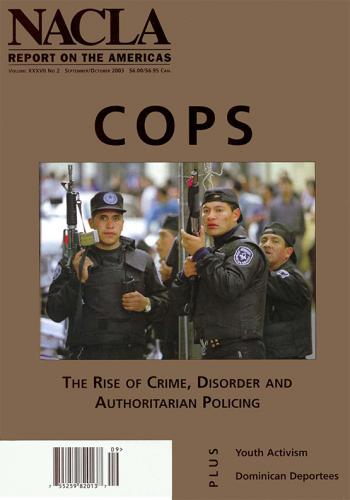Report
The police in Latin America are not simply the instrument used to control the unrest afflicting much of the region. Amid record crime, political instability and social disintegration, they have become part of that unrest.
Tepito is the Casbah of Mexico City, shadowy and serpentine, its back alleys vanishing into sinister dead-ends. Here underground tunnels lead to thieves’ dens, and clandestine warehouses are stuffed with stolen goods.
“It may not be right,” the off-duty police officer said, “but it does make my job easier.”
We were sitting in a small, rustic bar in Craig Town, one of Kingston’s “garrisons.”
Residents of Mexico City have been suffering from a heightened sense of public insecurity for at least a decade.[1] Robberies and muggings are relatively common occurrences, and many citizens fear the consequences of using automatic teller machines or hailing cabs on public thoroughfares, given the rise of “express kidnappings”—being forced to drive from ATM to ATM, usually at gunpoint, to withdraw cash.
In April 2003, Brazil’s media convulsed with shocking and conflicting images, as they struggled to define new public debates on warfare—the war in Iraq “over there” and the war on narcotraffic and violent crime “at home.”
In October 2001, just a month after the terrorist attacks on Washington and New York, when questions of security were on the minds of public officials everywhere, the leftist mayor of Mexico City, Andrés Manuel López Obrador, surprised everyone by ceremoniously inviting the controversial soon-to-be ex-mayor of New York, Rudolph Giuliani, to advise the authorities of the Mexican megalopolis on the implementation of the no-less-controversial plan called “zero tolerance,” the idea that no crime is too small to be prosecuted.

